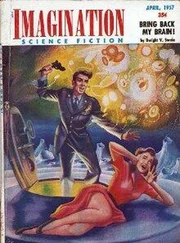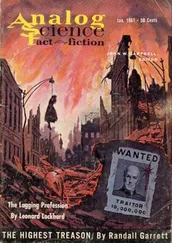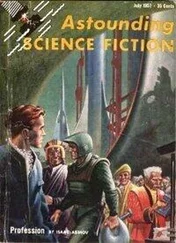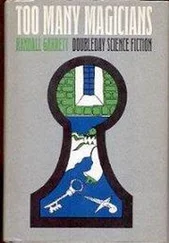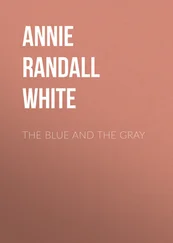Colonel Sorban saw what was coming and made no effort whatsoever to stop it. Instead, he simply sat there in straight-faced enjoyment.
"That's correct, Mr. Heywood," Senesin said, a little stiffly.
"I should have known," Heywood said. "You look a great deal like him. Although I don't know that I've ever seen your picture in the newsfacs or on the screens."
"Dad prefers to keep his family out of the spotlight," said Senesin, "unless we get publicity for something other than the accidental fact that we happen to be the family of the Prime."
"Yes, yes, of course. I see. May I stand the three of us a drink?" Senesin and the colonel were agreeable. The drinks were brought. Heywood took a swallow of his, and remarked casually: "Do you agree with your father's politics, sir?"
"I don't know," Senesin said flatly.
Heywood misunderstood completely. "Yes, I suppose it is a bit disappointing. Hard for a man's son to divide his loyalty like that. You can't support his actions, and yet you hesitate to condemn your own father."
"You mistake my meaning, Mr. Heywood," young Senesin said sharply. "I said, 'I don't know' because I honestly don't know what my father's politics is any more."
But Heywood only compounded his error. "Of course not. How could you? Since he became Prime, his policies have been erratic and unpredictable, not to say foolish."
This is it , thought the colonel, wondering what young Senesin's reaction would be. He didn't have to wonder longer than half a second.
"Mr. Heywood," said Senesin, his voice oddly tight under the strain of suppressed emotion, "a person should learn to know what he's talking about before he makes any attempt to talk. If you must talk drivel about my father, I'll thank you not to do it in my presence." And before Heywood could formulate an answer, Senesin turned to the colonel. "If you'll pardon me, my lord, I have another errand to perform. I'll see you at eleven." Then he turned and walked out.
Heywood stared at his receding back. "Well," he said after a moment, "I guess I spoke out of turn. But he seemed ..." He turned back to his drink, shrugged. "Oh, well. Tell me, my lord, what do you think of Senesin's policies? How long do you think he'll last in office?"
The colonel adroitly avoided the first question by answering the second. "I dare say he won't last long. There'll be a great fuss in the File, and most of his own party will desert him—I think. They hardly have any choice, considering the reaction of the populace to this Bairnvell thing."
"And I agree," said Heywood decisively. "We've got no business interfering with the lawful governments of planets and systems outside the Empire. The old days of Imperial expansion are over. Why, the way Lord Senesin acts, you'd think Emperor Jerris the First was on the throne."
"Well, not quite," Colonel Lord Sorban said dryly. "I can't imagine any Prime Portfolio in the time of Jerris I daring to act on his own initiative."
"Exactly," said Heywood, just as though the colonel had agreed with him. "That's why we have a constitutional Empire today. One man can't be allowed that much power without the consent of the governed. The people must have a right to depose anyone who abuses the power they give him." He swallowed the remainder of his drink. "Can you imagine what it would be like if the present Emperor tried to pull that sort of stuff? Not that he would , mind you; he's too good an Emperor for that. He sticks to his job. But these are different times. And then, too, we can't afford to antagonize the Gehan Federation. After all, I mean, war ..." He shook his head at the thought.
Colonel Lord Sorban had listened to Heywood's soliloquy with patience, but he felt his irritation growing. Much as he had enjoyed the play between Heywood and young Senesin, he had expected to get some information out of the boy before he left. And besides, Heywood's clichéd monologue was beginning to pall.
Therefore, the colonel finished his own drink, uttered some polite banalities and got out.
He walked around the corner to the restaurant, was bowed into a seat by an ultrapolite android, and quietly ordered his meal. While he waited, he spread the newsfac on the table in front of him, holding it with his right hand while his left elbow rested on the table and his left palm cradled his left jaw. In that position, there was nothing odd-looking about the fact that his left thumbtip was in contact with his larynx and his left middle finger was pressed tightly against the mastoid bone just behind his left ear. His lips began to move slightly, and anyone at a nearby table would have assumed that he was one of those readers who are habitual lip-movers.
"The Senesin boy says he has a lead on the tapes. That's all I could get out of him just now, but I have an appointment with him at eleven tonight. How far shall I let him go, Sire?"
The sensitive microphone in the tip of his thumb picked up the nearly inaudible sounds; the speaker in his middle finger vibrated against his skull and brought him the answer to his question.
"For the moment, I'll leave that up to you. But I wouldn't try to stop him just yet."
"Very well, Sire," murmured the colonel. He had already made up his mind to let the Senesin boy go as far as he could. The lad was smart, and his attack would at least provide a test for the psycho-sociological defenses that surrounded the Emperor.
"Do you think those tapes—if they exist—are genuine?" the voice asked.
"According to young Senesin," the colonel said carefully, "the tapes are supposed to show that certain ... ah ... 'highly-placed persons' in the Imperial hierarchy are influencing members of the Government illegally. You figure out what that might mean, Sire; it's a little too ambiguous to mean much to me."
"'Influencing,' eh? That could mean anything from a broad hint, through pressure and bribery, to actual brainwashing," said the voice from the finger.
"Which one do you think it is, Sire?" the colonel asked with mock innocency.
The voice chuckled, then said, "I haven't tried brainwashing yet."
"No-o-o," agreed the colonel, "but you might have to if Lord Evondering gets in, and if you have to, you will."
"Colonel," said the voice gently, "there are times when I believe you don't have a very high opinion of your Sovereign's moral outlook."
The colonel grinned, although he knew the listener couldn't see it. But he knew the other was grinning, too. "I humbly beg your majesty's pardon."
"You'll have to wait a while, colonel; Imperial pardons have to be by the Portfolio for the Interior. Your Sovereign is an impotent figurehead."
"Sure you are, Sire," said the colonel. "Meanwhile, what about those tapes?"
"Get them—or copies of them. They can't be dangerous in themselves, but if they're genuine, I want to know who's bugging this place. I can't have spies in the Palace itself. Otherwise, keep your eyes on the Senesin boy."
The voice went on giving instructions, but the colonel lifted the thumb of his left hand from his larynx; the waiter was approaching, and if he wanted to speak to him, it would be better not to have to interrupt the flow of words from his finger.
The android put the dishes on the table. "Coffee, sir?"
"Yes," said the colonel. "Cream, no sugar. And bring a second cup as soon as I've finished with the first." Only a part of his attention was given to the waiter; the rest was focused on the instructions he was receiving. The instructions kept coming until after the coffee had been brought. Then the voice said:
"Any questions?"
"No, Sire," said the colonel, replacing his thumb.
"Very well. I'll be expecting your report sometime between eleven and midnight."
The colonel nodded, brought his hand down from the side of his jaw to pick up his fork and begin a concerted attack on his lunch.
Читать дальше



